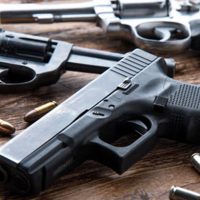Breaking Down Virginia’s Illegal Discharge Law

Most states prohibit the unauthorized discharge of firearms, and most states don’t strictly enforce these prohibitions. Virginia is different. Local authorities aggressively enforce Section 18.2-280 violations. Officers usually respond to shots-fired calls, investigators usually follow up, and prosecutors usually file charges.
Obviously, these cases have a lot of moving parts. Police officers can only refer cases to investigators if the original law enforcement contact was legal under the Bill of Rights. Investigators can only hand off these cases if they collect evidence in accordance with the law. And prosecutors need proof beyond any reasonable doubt to convict defendants.
Each phase in this process gives a Leesburg weapon crimes attorney an opportunity to present a procedural and/or substantive defense. The investigation is often the critical part of this process. Investigators cannot use rigged lineups to pinpoint suspects, and they cannot search or seize property, like a locker with a firearm inside it, unless they have proper legal authorization.
Bodily Injury
Illegal firearm discharge is a Class 6 felony if the defendant shot the gun in a public place and the bullet causes bodily injury.
According to this law, a public place includes “a place of public gathering.” A house party, especially if it spills out onto the yard, may fit this description.
The bodily injury component often isn’t as easy to prove. Generally, bodily injury means a first-aid injury, like a cut or bruise. A gun’s loud noise could cause tinnitus (ringing in the ears). But tinnitus often goes away on its own. It’s not a first-aid injury. Furthermore, prosecutors must connect the injury to a bullet from the defendant’s gun.
If the state cannot produce sufficient medical records that pass muster under Virginia law, or other compelling evidence, a Leesburg criminal defense lawyer can often convince a judge to throw the case out of court.
No Bodily Injury
Because of these proof problems, many prosecutors are willing to reduce felony unlawful discharge cases to misdemeanor unlawful discharge. A misdemeanor doesn’t have the same direct or collateral consequences as a felony.
Additionally, a misdemeanor reduction opens the door to more lenient punishments, such as pretrial diversion, unsupervised probation, and deferred disposition. If the defendant successfully completes these programs, the judge might erase, or at least seal, the defendant’s criminal conviction record.
Special Circumstances Illegal Discharge
This subsection makes these cases tricky. Prosecutors can enhance Class 1 misdemeanor unlawful discharge, which was mentioned above, to Class 4 if the defendant discharged the weapon within 1,000 feet of a “public, private or religious elementary, middle or high school property.” One thousand feet is basically the length of a football field. Half the street corners in Leesburg are probably within that distance of a school.
The good news is the enhancement doesn’t elevate a misdemeanor to a felony. Instead, the enhancement usually just makes pretrial diversion, unsupervised probation, and deferred disposition longer and more difficult to complete.
The Law Enforcement Exception
Many people complain about the special legal privileges that protect many police officers. Indeed, Section 18.2-280 includes a law enforcement exception.
However, the exception is limited. It only applies if the officer was carrying out his/her official duties. So, if the stop or arrest was illegal, the exception doesn’t apply. The exception also doesn’t apply if the officer fired a shot while moonlighting as a security guard.
Rely on a Dedicated Loudoun County Lawyer
There’s a big difference between an arrest and a conviction in criminal law. For a free consultation with an experienced criminal defense attorney in Leesburg, contact Simms Showers, LLP, Attorneys at Law. Convenient payment plans are available.
